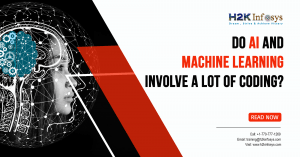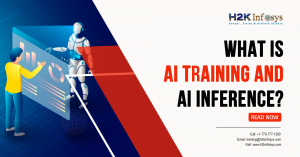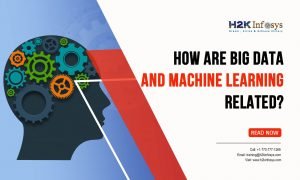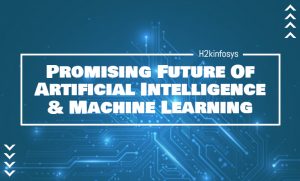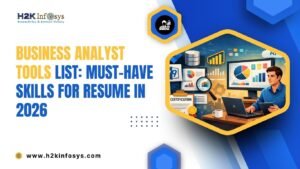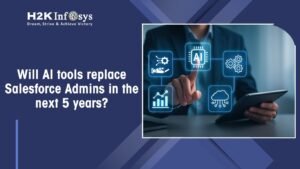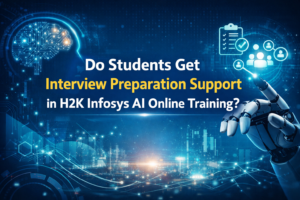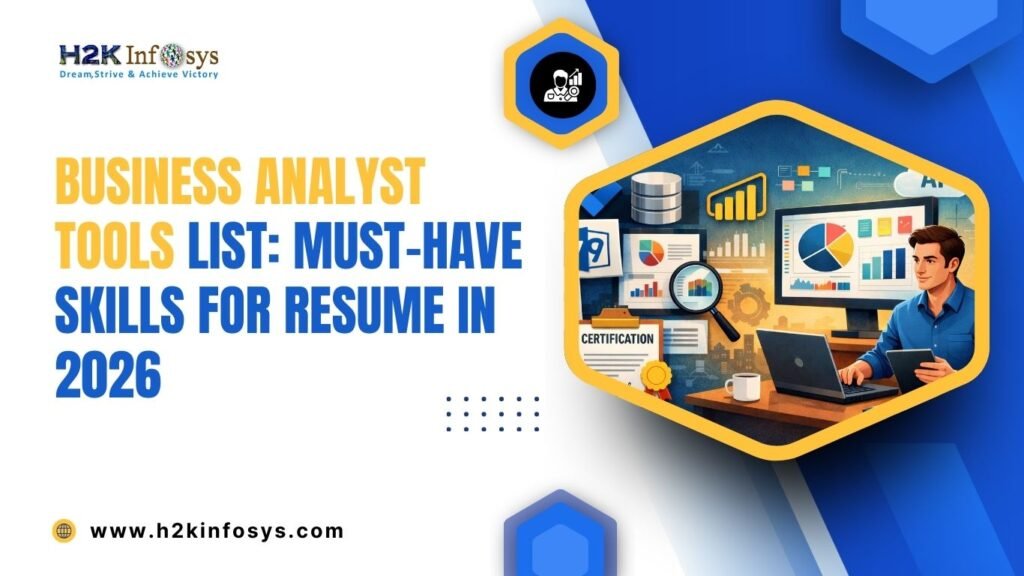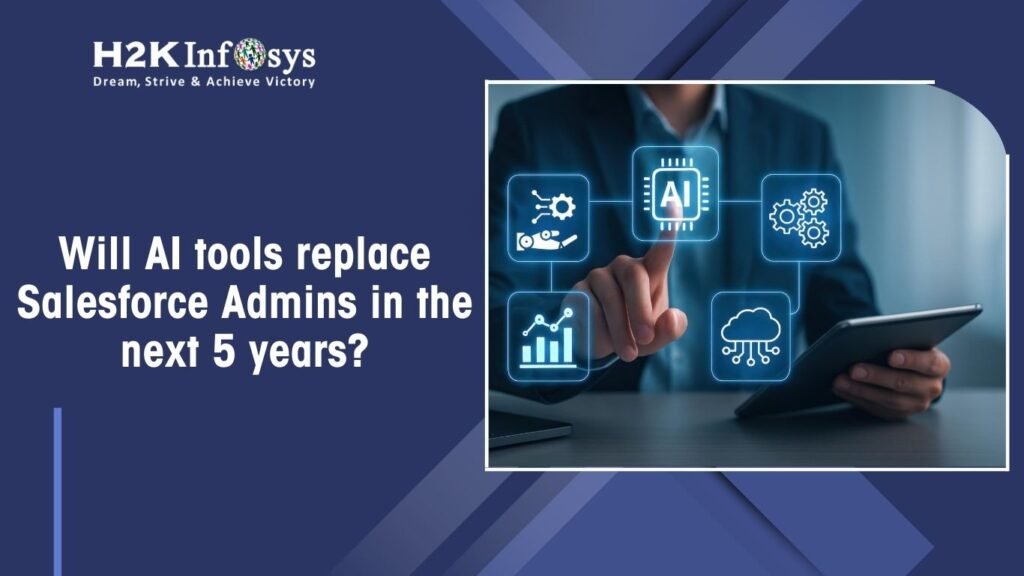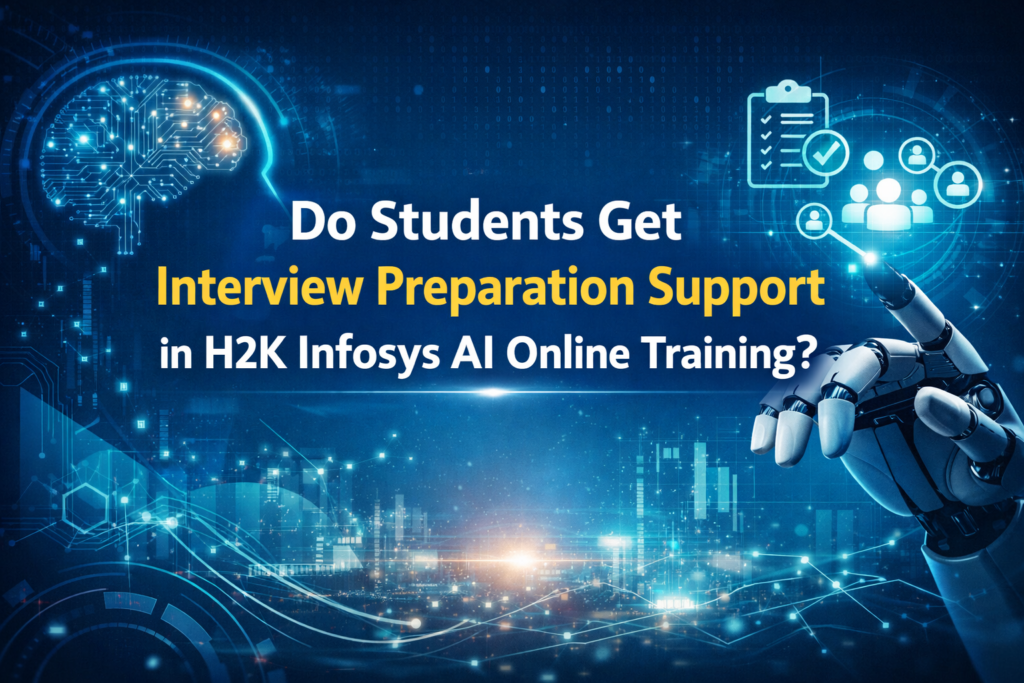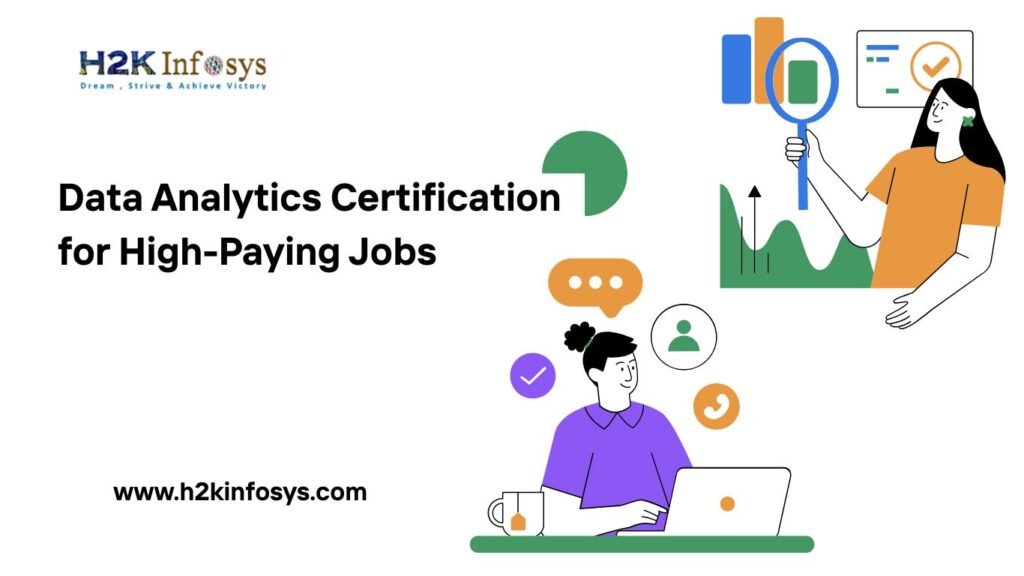Introduction: The AI Revolution and Career Boom
Artificial Intelligence (AI) is no longer a futuristic concept it’s the foundation of the digital transformation that’s reshaping industries worldwide. From self-driving cars to chatbots and intelligent healthcare systems, AI is fueling innovation like never before.
According to the World Economic Forum, AI and automation will create over 97 million new jobs globally by 2025. Organizations across finance, healthcare, manufacturing, e-commerce, and entertainment are aggressively hiring professionals skilled in AI technologies.
An Artificial Intelligence Certified Course can be your ticket to entering this booming market. It not only validates your technical expertise but also equips you with the real-world skills employers seek from machine learning (ML) to natural language processing (NLP) and data-driven decision-making.
In this we’ll explore the top AI job roles you can pursue after earning an Artificial Intelligence certification, their responsibilities, required skills, and average salary packages.
Why an Artificial Intelligence Certification Matters
1. Skill Validation
AI certifications validate your practical expertise in topics such as machine learning, deep learning, neural networks, Python programming, and data visualization helping you stand out in a competitive job market.
2. Industry Recognition
Certified professionals are preferred by top recruiters like Google, Amazon, Microsoft, IBM, and Meta. These companies look for candidates who possess both conceptual understanding and applied AI project experience.
3. Better Salary Packages
AI-certified professionals earn significantly more. According to Glassdoor, entry-level AI engineers can make $90,000–$120,000 annually, while senior professionals earn over $150,000.
4. Career Mobility
An AI certification offers flexibility to switch between domains such as data analytics, computer vision, robotics, and natural language processing, giving you long-term career stability.

5. Hands-On Learning and Real Projects
Top AI courses focus on hands-on experience with real-world projects, preparing you to design, train, and deploy AI models using popular frameworks like TensorFlow, Keras, and PyTorch.
Top AI Job Roles You Can Land with an Artificial Intelligence Certification
Let’s dive deep into the most in-demand AI roles that a certification can help you achieve.
1. Machine Learning Engineer
Role Overview:
Machine Learning Engineers design and build algorithms that allow machines to learn from data and make decisions. They play a crucial role in developing models that power recommendations, predictions, and automation.
Key Responsibilities:
- Building, training, and optimizing ML models
- Working with data scientists to preprocess datasets
- Deploying models into production environments
- Experimenting with hyperparameter tuning and model evaluation
Core Skills:
- Python, R, or Java programming
- TensorFlow, PyTorch, Scikit-learn
- Data preprocessing and model validation
- Understanding of cloud platforms like AWS, Azure, or GCP
Average Salary:
$110,000 – $145,000 per year
Industries Hiring:
Tech companies, financial institutions, healthcare startups, and e-commerce platforms.
2. Data Scientist
Role Overview:
Data Scientists extract insights from complex data sets and use AI algorithms to solve business challenges. Their work informs decisions in marketing, finance, operations, and product development.
Key Responsibilities:
- Data cleaning, transformation, and visualization
- Applying machine learning models to detect trends
- Communicating insights through dashboards and reports
- Collaborating with stakeholders to define data strategies
Core Skills:
- Python (NumPy, Pandas, Matplotlib, Seaborn)
- SQL and big data tools (Hadoop, Spark)
- Predictive analytics and deep learning
- Statistical modeling and hypothesis testing
Average Salary:
$100,000 – $140,000 per year
Industries Hiring:
Healthcare, e-commerce, BFSI (Banking, Financial Services, and Insurance), and telecommunications.
3. Artificial Intelligence Engineer
Role Overview:
AI Engineers combine the power of software engineering and data science to build intelligent applications that mimic human reasoning, perception, and decision-making.
Key Responsibilities:
- Developing and integrating AI models into applications
- Designing systems for image recognition, speech processing, and NLP
- Ensuring model scalability and optimization
- Collaborating with cross-functional teams
Core Skills:
- Deep Learning, Neural Networks (CNN, RNN)
- Knowledge of TensorFlow, Keras, and OpenCV
- Strong foundation in Python and C++
- Experience with APIs and model deployment

Average Salary:$115,000 – $160,000 per year
Industries Hiring:
Technology firms, autonomous vehicle manufacturers, cybersecurity, and digital assistants.
4. Natural Language Processing (NLP) Engineer
Role Overview:
NLP Engineers specialize in building systems that understand and process human language. Their work powers chatbots, translation tools, and voice assistants like Siri and Alexa.
Key Responsibilities:
- Building and training NLP models for text classification and sentiment analysis
- Designing conversational AI systems and chatbots
- Applying transformer-based architectures (BERT, GPT, LLaMA)
- Improving speech-to-text and text-to-speech models
Core Skills:
- Python and NLP libraries (spaCy, NLTK, Transformers)
- Data annotation and linguistic modeling
- Machine translation and conversational AI
- Cloud-based deployment
Average Salary:
$120,000 – $155,000 per year
Industries Hiring:
Healthcare, customer service automation, marketing analytics, and fintech.
5. Computer Vision Engineer
Role Overview:
Computer Vision Engineers focus on building AI systems that interpret visual data from images or videos. Their work supports autonomous driving, surveillance, and healthcare imaging.
Key Responsibilities:
- Developing image recognition and object detection algorithms
- Implementing image segmentation and feature extraction
- Optimizing neural networks for speed and accuracy
- Collaborating with robotics and embedded systems teams
Core Skills:
- OpenCV, PyTorch, TensorFlow
- CNN architectures (ResNet, VGG, YOLO)
- Image annotation tools and visual data processing
- GPU computing and model optimization
Average Salary:
$110,000 – $150,000 per year
Industries Hiring:
Healthcare, automotive, retail, and defense.
6. Robotics Engineer
Role Overview:
Robotics Engineers integrate AI into machines that perform physical tasks. They design robots that can think, adapt, and learn combining mechanical engineering with AI algorithms.
Key Responsibilities:
- Designing and programming autonomous robots
- Integrating computer vision and pathfinding algorithms
- Building feedback and motion control systems
- Testing and improving robot performance
Core Skills:
- Python, ROS (Robot Operating System)
- Control systems and sensor integration
- Deep reinforcement learning
- Knowledge of IoT and edge AI
Average Salary:
$105,000 – $145,000 per year
Industries Hiring:
Manufacturing, logistics, defense, and healthcare.
7. AI Research Scientist
Role Overview:
AI Research Scientists are at the forefront of innovation, pushing the boundaries of what AI can achieve. They work on advanced algorithms, model architectures, and experimental systems.
Key Responsibilities:
- Conducting experiments to advance AI understanding
- Publishing research papers and prototypes
- Designing custom neural architectures
- Collaborating with universities and labs
Core Skills:
- Advanced mathematics (linear algebra, calculus, probability)
- Python, C++, TensorFlow, PyTorch
- Deep Learning and Reinforcement Learning
- Strong analytical and problem-solving mindset
Average Salary:
$130,000 – $180,000 per year
Industries Hiring:
AI research labs, big tech R&D departments, and academic institutions.
8. Business Intelligence (BI) Developer (AI-Driven Analytics)
Role Overview:
BI Developers leverage AI tools to transform raw data into meaningful insights that guide business strategy.
Key Responsibilities:
- Building AI-powered dashboards and predictive models
- Integrating machine learning into business analytics tools
- Supporting data-driven decision-making
- Working with cross-departmental teams
Core Skills:
- Power BI, Tableau, or Qlik
- Python/R and SQL for data analysis
- Predictive modeling and automation
- AI-integrated visualization
Average Salary:
$90,000 – $130,000 per year
Industries Hiring:
Retail, healthcare, marketing, and finance.
9. AI Product Manager
Role Overview:
AI Product Managers bridge the gap between technology and business. They oversee AI product development, ensuring that solutions meet both user and market needs.

Key Responsibilities:
- Defining AI product strategies
- Collaborating with engineering and data science teams
- Ensuring ethical AI implementation
- Managing product lifecycle and deployment
Core Skills:
- Product lifecycle management
- AI system understanding and stakeholder communication
- Data-driven decision-making
- Agile and Scrum methodologies
Average Salary:
$120,000 – $160,000 per year
Industries Hiring:
Tech startups, healthcare, SaaS, and e-commerce.
10. AI Ethics Specialist
Role Overview:
AI Ethics Specialists ensure responsible AI development by addressing bias, transparency, and fairness issues in algorithms.
Key Responsibilities:
- Reviewing AI models for fairness and compliance
- Implementing governance frameworks for AI ethics
- Collaborating with policymakers and legal experts
- Educating organizations on ethical AI practices
Core Skills:
- AI regulation and compliance knowledge
- Data privacy laws (GDPR, HIPAA)
- Bias detection and fairness analysis
- Research and documentation
Average Salary:
$95,000 – $135,000 per year
Industries Hiring:
Public sector, tech firms, consulting companies, and academic institutions.
Top Companies Hiring AI Professionals in 2025
| Company | Primary AI Focus Areas |
|---|---|
| Google DeepMind | Generative AI, Robotics, NLP |
| Microsoft Azure AI | Cloud AI, Responsible AI |
| Amazon AWS | Machine Learning, Forecasting |
| Meta (Facebook AI) | Generative AI, Vision, Speech |
| IBM Watson | AI for Business Analytics |
| NVIDIA | AI Chips, Deep Learning Research |
| OpenAI | GPT-based LLMs and APIs |
| Tesla | Autonomous Driving, Edge AI |
Essential Tools You’ll Learn in an Artificial Intelligence Certification
| Category | Tools & Frameworks |
|---|---|
| Programming Languages | Python, R, Java |
| AI Frameworks | TensorFlow, Keras, PyTorch |
| Data Science Tools | Pandas, NumPy, Scikit-learn |
| Visualization | Matplotlib, Seaborn, Tableau |
| Cloud AI Platforms | AWS SageMaker, Google Vertex AI, Azure ML |
| Version Control | Git, GitHub |
| Collaboration Tools | Jupyter Notebook, Google Colab |
How H2K Infosys Prepares You for Top AI Job Roles
H2K Infosys offers industry-aligned Artificial Intelligence training and placement programs designed to help learners become job-ready.
Key Highlights:
- Live instructor-led training sessions
- Hands-on AI and ML projects
- Resume building and interview preparation
- Job placement assistance until hired
- Comprehensive coverage of tools like TensorFlow, Keras, Python, and Scikit-learn
With real-world simulations, expert mentorship, and flexible online schedules, you’ll gain the skills to transition confidently into AI-driven job roles.
Career Outlook: The Future of AI in 2025 and Beyond
AI continues to disrupt industries with exponential innovation. According to Statista, the global AI market size is projected to reach $305 billion by 2025, driven by cloud AI services, automation, and machine learning applications.
With enterprises embedding AI into everything from cybersecurity to retail analytics, AI professionals are among the highest-paid technologists worldwide.
Certified AI professionals can expect career growth, global mobility, and lifelong relevance in a world where intelligent systems drive productivity and profitability.
Conclusion: Shape Your Future with an Artificial Intelligence Certification
Online courses for artificial intelligence are transforming the global job landscape, creating countless opportunities across every sector. Whether you’re aspiring to become a Machine Learning Engineer, AI Product Manager, or Data Scientist, earning an Artificial Intelligence certification can unlock pathways to lucrative and meaningful careers.
Through structured training, hands-on projects, and real-world mentorship, AI-certified professionals are leading innovation and redefining what’s possible in technology.
If you’re ready to start your journey toward a future-proof tech career, now is the time to enroll in an Online courses for Artificial Intelligence and take the first step toward a six-figure job in 2025.
Key Takeaways
An Artificial Intelligence certification validates technical and analytical expertise.
Top roles include AI Engineer, Data Scientist, NLP Engineer, and Robotics Engineer.
Certified AI professionals can earn $90,000–$180,000 per year.
Global demand for AI talent continues to grow across industries.
H2K Infosys offers comprehensive AI training with 100% placement support.


